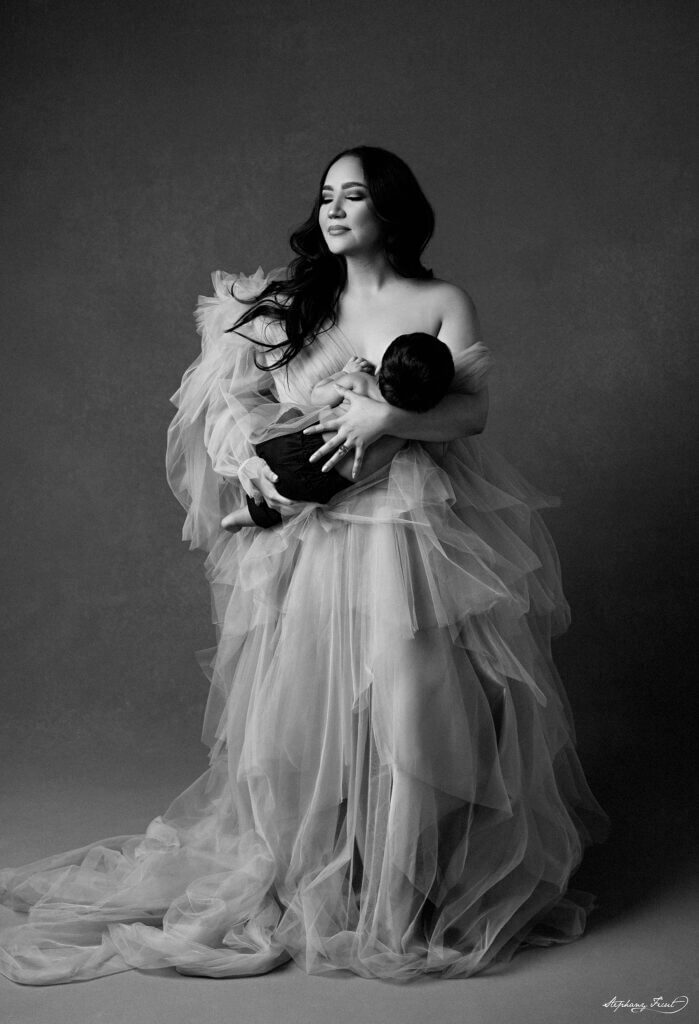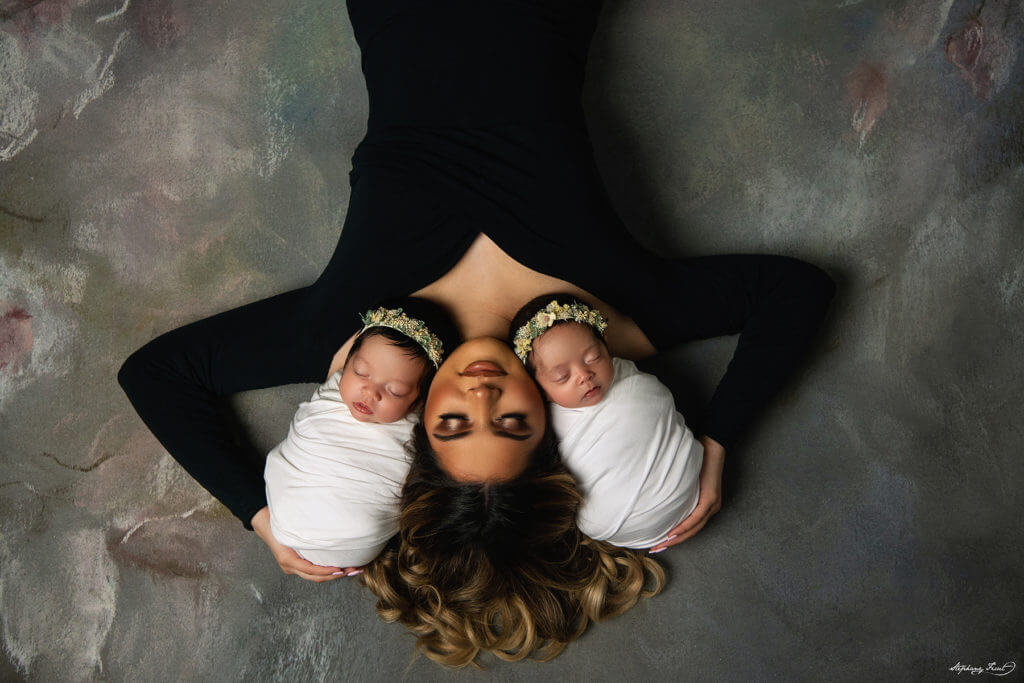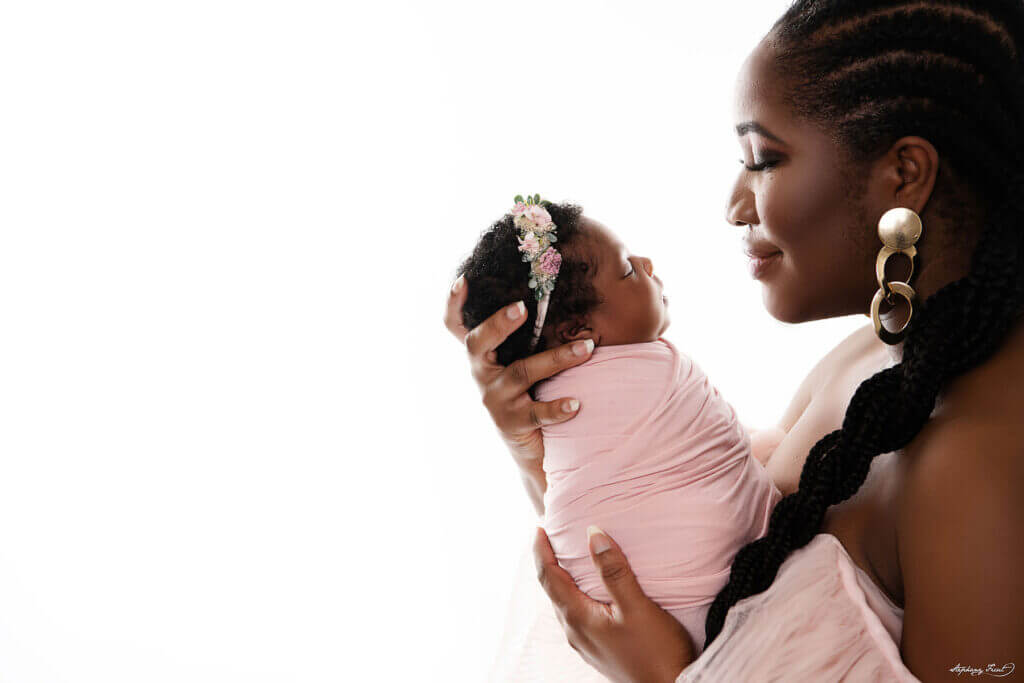
Menu
I meet so many first-time moms from all around the Dallas–Fort Worth area, and while chatting about their maternity and newborn sessions, we inevitably talk about food. One of the most common topics we discuss is pregnancy cravings. Usually, the conversation stops there, and I’ve realized that not many moms know what foods to avoid during their breastfeeding period.
So, this breastfeeding food guide will give you an idea of a good diet for breastfeeding mamas. Did you know that your breast milk has different colors and flavors depending on the food you eat? If you have a varied diet, your baby might have your likes and dislikes in terms of food. It goes without saying that a healthy diet is crucial, especially when you’re breastfeeding.
Although there’s no standard maternal diet you should be following, there’s still consensus on the foods you should be avoiding or restricting. Knowing what foods to avoid while nursing will also help our newborn session, guaranteeing a calm and happy baby.
So, for the past few years, I've been sending moms this following guide by Dr. O'Connell from Newport Beach, California. I’ve broken it down into three sections. We highly suggest if your baby is gassy, avoid these foods at least 48 hours before your session.

1. Cranberries
2. Pineapple
3. Grapefruit
4. Oranges
5. Lemons
6. Strawberries
7. All berries
8. Tomatoes or tomato products
9. Chocolate (rarely affects babies)
10. Peanuts - nuts in general
11. Pizza
12. Spaghetti
13. Chili
14. Tacos/Spicy/Mexican Food/Salsa
15. Ketchup
In theory, breastfeeding mamas can eat citrus fruits such as grapefruit, oranges, lemons without any problems since they’re full of vitamin C. In some cases, it can upset the baby’s stomach, although it’s rare.
It’s best to see how your baby reacts to citrus fruits— is the baby uncomfortable and experiencing symptoms like diarrhea and explosive stools? If so, eliminate it from your diet and see if it fixes the problem. Try getting the daily dose of vitamin C from other sources, like leafy greens.
It’s the same principle with spicy foods, especially if Mexican food has been part of your diet during pregnancy. Research shows that babies are used to the flavors they’ve experienced in utero.
I'm hoping you find this list a helpful guide of common foods to avoid while nursing. These foods typically affect But, to be on the safe side, avoid citrus acidic and spicy foods 48 hours before the newborn session.
1. Asparagus
2. Onions
3. Cucumbers
4. Pickles
5. Broccoli
6. Cauliflower
7. Brussel Sprouts
8. Cabbage
Again, in theory, breastfeeding mamas can eat cruciferous veggies like broccoli, cauliflower, Brussel sprouts without a problem.
But some have noticed that their babies get fussy after eating gassy vegetables, such as onions. This is not to say that it’s a food allergy. Some babies get gassy because they swallow air when they eat or cry. Being gassy is not harmful, and most babies get used to this food sensitivity after a few months. Your baby’s digestive system strengthens and gets accustomed to gassy veggies.
What’s more severe and should be checked with a healthcare professional is if you notice distress. Seek medical help if your baby has diarrhea, blood in the stool, rashes, reflux, or severe abdominal pain. You can tell your baby has abdominal pain if it doesn’t eat or sleep, if it cries more than usual, if it tries to curl, or if it makes faces that show pain.
It’s advisable to avoid cruciferous foods at least two days before the newborn session just to be sure.
1. Soda
2. Coffee
3. Tea
4. Wine
5. Beer
6. Check with your doctor to see if dairy is an issue.

Soda and sugary drinks. A recent study shows that too much consumption of sugary beverages negatively affects the baby’s cognitive development. Plus, infants exposed to sugary drinks develop a life-long affinity.
Early exposure makes them more likely to indulge in more soda as they grow instead of drinking water, necessary for hydration and proper cellular function. So, breastfeeding mamas should cut back on sugar-sweetened beverages, juice included. Drink unsweetened fruit juice instead.
Alcohol. It’s best to restrict the consumption of wine, beer, and cocktails of any kind. Although there’s no scientific evidence to show that it has adverse effects on your baby, it’s advisable to avoid it in the first three months.
Did you know that alcohol consumption can temporarily reduce your milk production, leaving your little one wanting more milk? It’s not harmful to your baby, but then again, alcohol doesn’t have dietary benefits to your little one’s development.
After a couple of months, restrict alcohol consumption to a small 4 oz glass. If you still want a drink, you can store milk beforehand in the fridge and give it to your baby or wait a couple of hours for the alcohol to go through your system before you breastfeed again.
Caffeine. It’s best to restrict energy drinks, Coca-Cola, chocolate, tea, and coffee during the first three months– anything with a caffeine intake– because it may keep your baby up at night.
It’s generally safe to drink coffee if you are breastfeeding, but it’s advisable to watch how your little one reacts to the milk after you’ve had some coffee. Some babies are fussy or wakeful.
Talk to your dietitian or healthcare professional about your recommended dose. But a good rule of thumb is not to have more than two mugs of filtered coffee a day (or four mugs of black/green tea).
There’s a myth that coffee dries up your breast milk. It doesn’t reduce your milk yield, but it does dehydrate your body. Drink plenty of water during the breastfeeding phase. There’s another myth that drinking a lot of water boosts your milk supply– sadly, that’s been debunked.
Water. Breastfeeding makes you thirsty– so sip a glass of water when you’re breastfeeding your baby. By restricting the other liquids, it’ll be easier to keep track of your six to eight glasses of fluid a day. Breastfeeding mamas need even more during nursing.
Takeaway: I hope you find this list a helpful guide of common foods to avoid while nursing. These foods typically affect babies under six weeks. As they get older, it is recommended to introduce foods one at a time to see how they are affected.
Your daily intake of calories depends mainly on your own BMI, how active you are, and your baby’s age, weight, and appetite. You should also take into consideration whether you are breastfeeding exclusively or if you are feeding twins.
A rough estimation is around 450-500 extra calories. But since every mom is different, you might need to adapt the caloric intake. Plus, if you plan to lose the weight you’ve put on during your pregnancy, make sure you’re not starving yourself but exercising and sleeping well. If you’re losing more than 2.2 lbs per month, you should follow a more balanced diet.
It’s good to know that if you had certain dietary restrictions from your pregnancy, they do not apply to breastfeeding. It’s essential to pay attention to your diet the first six weeks after delivery. Everything you eat becomes part of your breast milk. Some babies are more sensitive to particular foods than others.
Young babies are gassy or fussy mainly because of common allergy culprits (cow's milk, soy, peanuts, eggs, wheat, nuts, etc.) found in their mom’s diet. Few babies (2-3%) develop food allergies due to the mom’s breastmilk.
Keep a food diary if you notice symptoms after your baby’s mealtime. Write down everything you eat and drink and see if there’s a pattern. Don’t worry; you don’t need to stop breastfeeding. If your baby is eating, gaining weight, and not showing signs of anemia, the symptoms shouldn’t cause significant problems.
Still, seek a healthcare professional’s advice (a pediatrician or a dietitian) if the symptoms persist, especially if you have a family history of allergies. They might advise you to eliminate a food group for a short while and see if there’s any difference after you reintroduce it weeks later.
Generally speaking, vegetarian diets shouldn’t be harmful to breastfeeding. Keep in mind to (1) eat enough calories throughout the day, (2) avoid and/or restrict the foods mentioned in the list above, (3) drink plenty of water, and (4) make sure you get all the nutrition you need after childbirth— protein, carbohydrates, healthy fats, vitamins, and minerals. Also, take supplements if you need to, but talk to your healthcare professional for specialized advice.
Usually, vegetarian breastfeeding mamas need extra vitamin B12, vitamin D, calcium, and omega-3 fatty acids. These are recommended to any nursing mother. Plus, vegetarians should take iron and zinc from legumes and seeds.
Vegan mamas need to make sure they get vitamin B12 from supplements or fortified foods, as it is crucial for healthy neurological development—nerve tissue, brain function, cell metabolism, and red blood cell production. Vitamin B12 is found naturally in meat, poultry, fish, eggs, and dairy.
Speaking of healthy brains— omega-3 fatty acids are crucial for neurological wellbeing. Not only are they good for the baby, but also the mother. Research shows that an omega-3 deficiency leads to postpartum depression.
Vitamin D is essential for healthy bones— make sure you get enough sun exposure. Even 10-30 minutes of midday sunlight can significantly benefit your body, thus the quality of your milk. Also needed for healthy bones, calcium is an essential mineral that gets depleted when breastfeeding.





There’s no perfect diet— there are only guidelines and common sense. This list is not exhaustive, but it covers the basics regarding breastfeeding before any newborn photography session.
It’s best to avoid the foods mentioned in this list at least 48 hours before the photoshoot. Newborn sessions are best done in the first 14 days after birth, so it’s too early to test every single item on the list. Even if your baby is not sensitive to any of those foods, it’s best to play it safe.
Speaking of safety, I make sure that the newborn photography poses are not dangerous, and I promise to handle your tiny human with utmost care. I have the latest accreditations in newborn safety, and my expertise spans over ten years.
I’m an award-winning photographer with international experience, and my passion is to create a personalized luxury experience for every mama. To ensure every detail is in place, book a consultation as early as possible.
Just as we customize every photography session to match our little clients, they too deserve individual care and attention. Every baby is different, so be sure to consult with your pediatrician or healthcare professional.
Check other dedicated articles for more tips on motherhood. To schedule your free pre-session design consultation in Dallas, please contact our photography studio here.
Award winning professional photographer specializing in maternity and newborn photography in Dallas/Fort Worth, Texas
Award winning professional photographer specializing in maternity and newborn photography in Dallas/Fort Worth, Texas